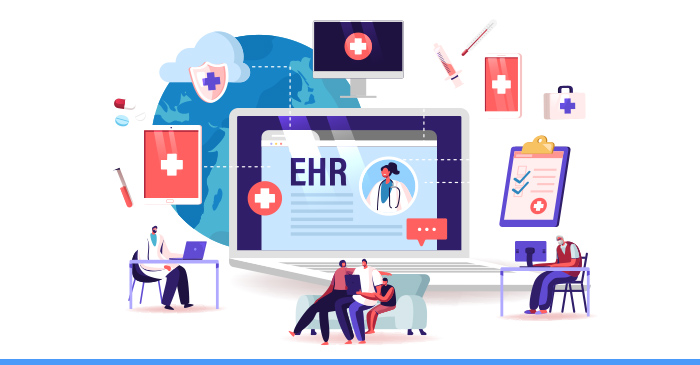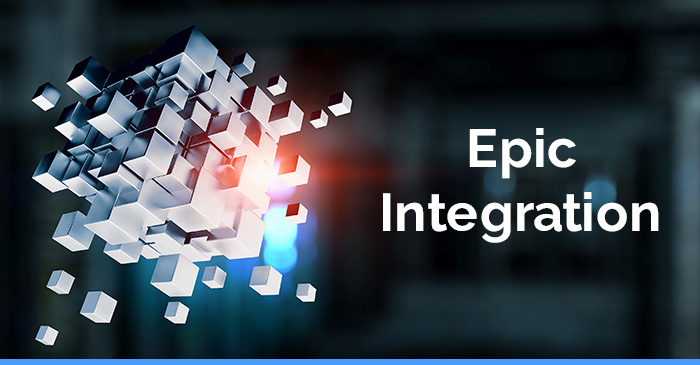
EHR Software and Epic Integration
As technology advances, so does the healthcare industry. Implementing Electronic Health Record (EHR) software is one of the most significant changes. EHR software is a digital system that stores patient health records, making it easier for healthcare providers to access and manage patient data.
Epic is a leading EHR integration software provider that many healthcare organizations use worldwide. Integrating Epic with EHR software can provide numerous benefits, including improved patient care and increased efficiency.
The Epic API (Application Programming Interface) is a set of tools that enables healthcare providers to customize their Epic implementation and integrate it with other systems, including EHR software. The Epic API allows healthcare providers to create a more tailored EHR experience for their patients and staff.
Integrating Epic with EHR software can streamline healthcare processes and improve patient care. With integrated EHR software, healthcare providers can access patient data more easily and quickly, reducing the risk of errors and improving the accuracy and completeness of patient records.
Additionally, integrating Epic with EHR software can increase efficiency by automating data entry and reducing manual processes. This can save time and resources, allowing healthcare providers to focus on delivering quality patient care.
What is Epic Integration?

Integrating Epic with EHR software is becoming increasingly popular among healthcare providers. But what exactly is Epic integration, and what types of integration are available? Let’s take a closer look.
Epic integration refers to connecting Epic EHR software with other systems, such as EHR software, to create a seamless healthcare experience. There are several types of Epic integration, including API-based, HL7-based, and FHIR-based.
API-based integration is the most common type of Epic integration. APIs, or Application Programming Interfaces, allow different software applications to communicate, enabling healthcare providers to integrate Epic with their EHR software. With API-based integration, healthcare providers can customize their Epic implementation to meet their specific needs, enabling more efficient workflows and streamlined processes.
HL7-based integration is another type of Epic integration, using the HL7 messaging standard to exchange patient data between Epic and other systems. HL7-based integration is often used for exchanging lab results or clinical documents, such as discharge summaries or progress notes.
FHIR-based integration is the newest type of Epic integration and uses the Fast Healthcare Interoperability Resources (FHIR) standard to exchange data between Epic and other systems. FHIR-based integration is more flexible and can support a broader range of data types, such as images, videos, and audio.
Integrating Epic with EHR software can provide numerous advantages for healthcare providers, including improved patient care, increased efficiency, and improved accuracy and completeness of patient data. By integrating Epic with their EHR software, healthcare providers can access patient data more easily and quickly, reducing the risk of errors and improving the quality of care delivered to patients.
Furthermore, integration can reduce manual processes, saving time and resources and enabling healthcare providers to focus on delivering quality patient care. Epic integration can also improve data accuracy and completeness by enabling automatic data entry, reducing the likelihood of incomplete or incorrect information.
Benefits of Epic Integration with HER Software

Integrating Epic with EHR software can provide numerous benefits for healthcare providers, including streamlined workflows, improved patient care, and enhanced data analysis. Let’s take a closer look at each of these benefits.
Streamlined Workflows
Streamlining workflows is one of the most significant benefits of Epic integration with EHR software. Automated data entry and reduced data duplication can save healthcare providers time and resources. Eliminating manual processes can also improve the accuracy and completeness of patient data.
Improved Patient Care
Integrating Epic with EHR software can lead to improved patient care. With access to patient data more easily and quickly, healthcare providers can make informed decisions, provide more accurate diagnoses, and deliver personalized treatment plans. Increased patient satisfaction can also be achieved through timely and accurate care delivery, and enhanced patient safety can be ensured by reducing the risk of medical errors.
Enhanced Data Analysis
Epic integration with EHR software can improve data analysis, providing healthcare providers with better decision-making capabilities. With improved access to patient data, healthcare providers can identify trends and patterns that can help predict and prevent potential health issues. Enhanced reporting capabilities can provide valuable insights into patient outcomes and overall health system performance.
Challenges of Epic Integration
While the benefits of integrating Epic with EHR software are clear, there are also some challenges that healthcare providers may face during the integration process. Let’s take a look at some of the most common challenges.
Technical Challenges
Integration complexity is one of the most significant technical challenges of Epic integration with EHR software. Integration can be a complex process, requiring significant technical expertise and resources. Data migration can also be challenging, as data from multiple sources must be consolidated and transferred to the new system. Security and privacy concerns must also be addressed, as patient data is sensitive and must be protected.
Operational Challenges
Integration costs can be a significant operational challenge, as the process can be expensive and time-consuming. In addition to the cost of integrating the systems, additional costs may be associated with training staff to use the new system. Change management can also be challenging, as staff may resist changing their existing workflows.
Best Practices for Epic Integration
To ensure a successful Epic integration with EHR software, there are some best practices that healthcare providers should follow. Let’s take a look at some of the most important ones:
Conduct a thorough assessment of the organization’s needs
Before beginning the integration process, assessing the organization’s needs is essential. This includes evaluating the current EHR system and identifying the specific goals and objectives of the integration. This assessment will help ensure that the integration meets the organization’s needs and objectives.
Choose the right Epic Integration approach
There are different types of Epic integration approaches, including API-based, HL7-based, and FHIR-based integration. Healthcare providers must choose the right approach based on their specific needs and requirements. A consultant with experience in Epic integration can help the organization select the most appropriate approach.
Work with experienced Epic Integration consultants
Epic integration can be complex, and working with consultants with experience in Epic integration is essential. Experienced consultants can help the organization navigate the technical and operational challenges associated with the integration and ensure that the integration is successful.
Build a strong project team
Building a strong project team is crucial to the success of the Epic integration project. This team should include representatives from different departments, including IT, clinical staff, and administration. The team should work closely with the Epic integration consultants and ensure all stakeholders are involved.
Provide adequate training and support
Finally, providing adequate training and support to staff members using the new system is essential. This includes both technical trainings on how to use the system and training on any changes to workflows or processes. After the integration is complete, providing ongoing support will help ensure that staff members are comfortable using the new system and can continue providing quality patient care.
Conclusion
In conclusion, integrating Epic with EHR software can benefit healthcare providers significantly, including streamlined workflows, improved patient care, and enhanced data analysis. While some technical and operational challenges are associated with Epic integration, following best practices can help ensure a successful integration project. Contact Arturo Digital today if you’re looking for a reliable partner for mobile app development services with Epic integration. Let our experienced team guide you through the process and help you unlock the full potential of Epic integration.
Read more: Unlock Efficiency with a Dedicated Development Team